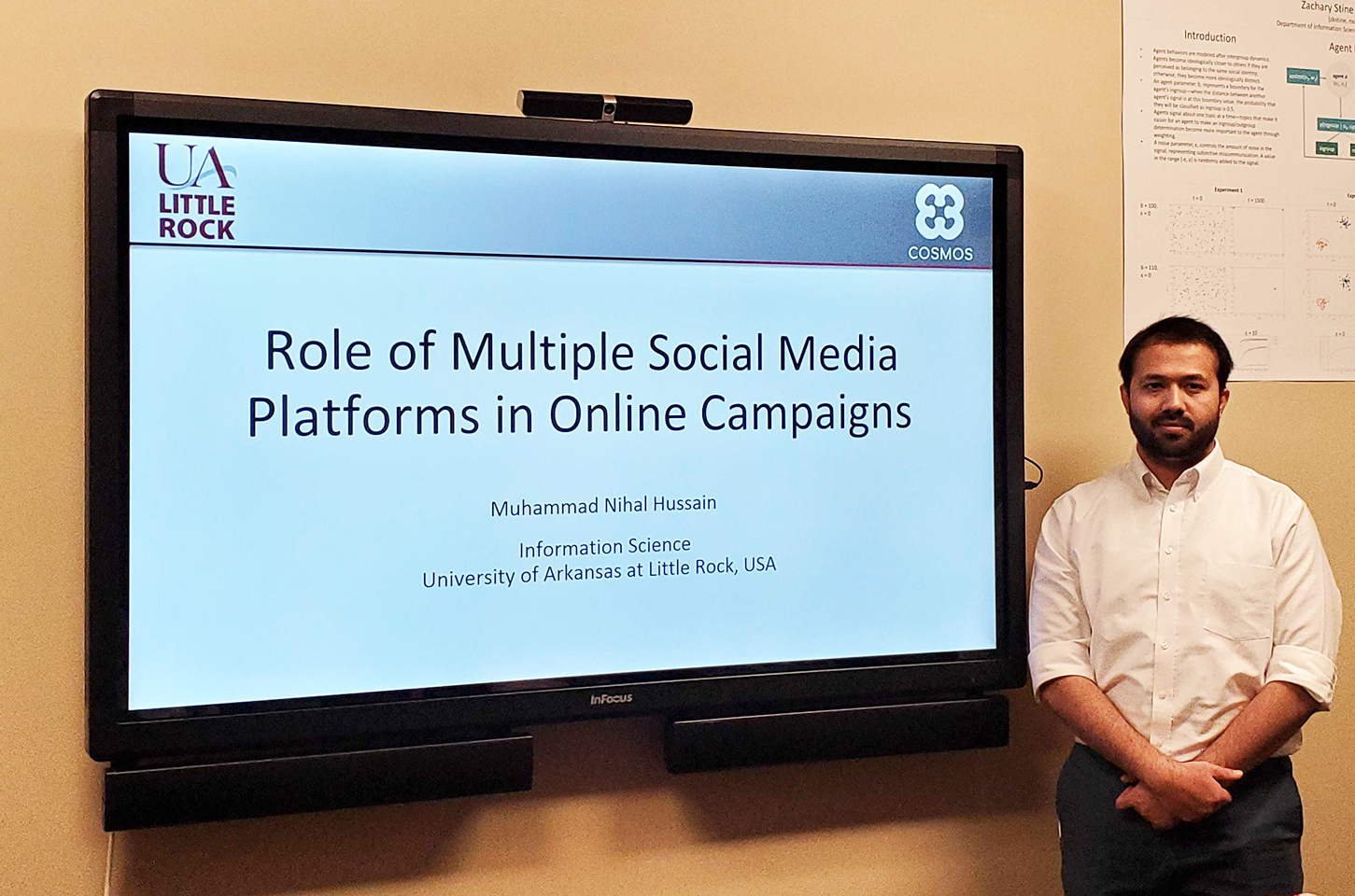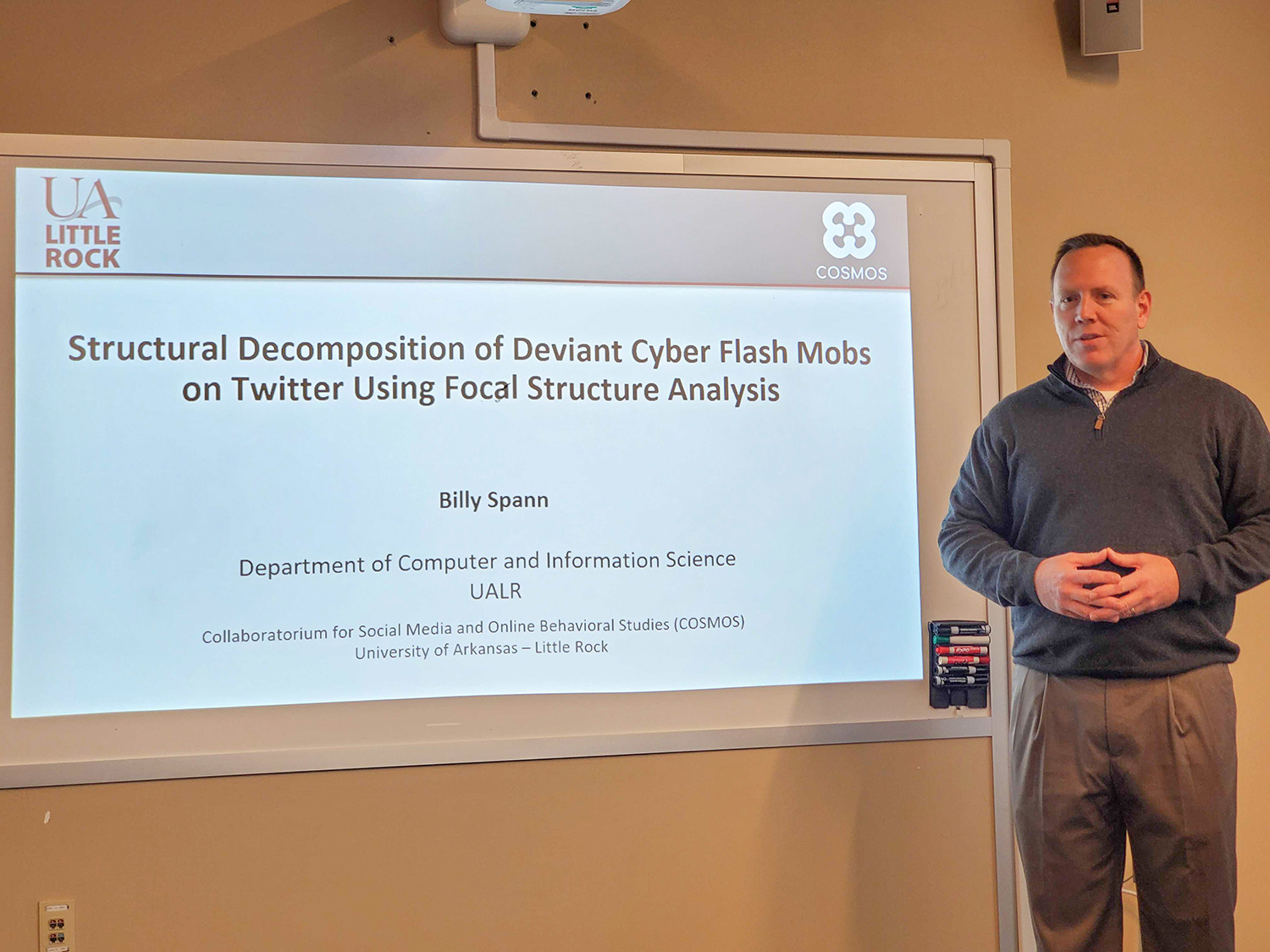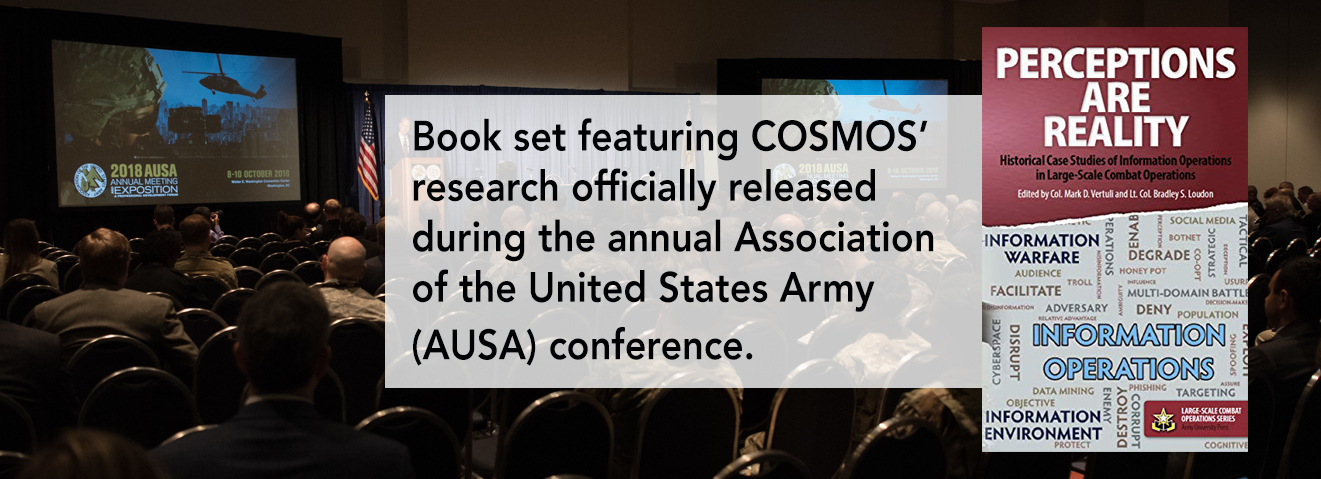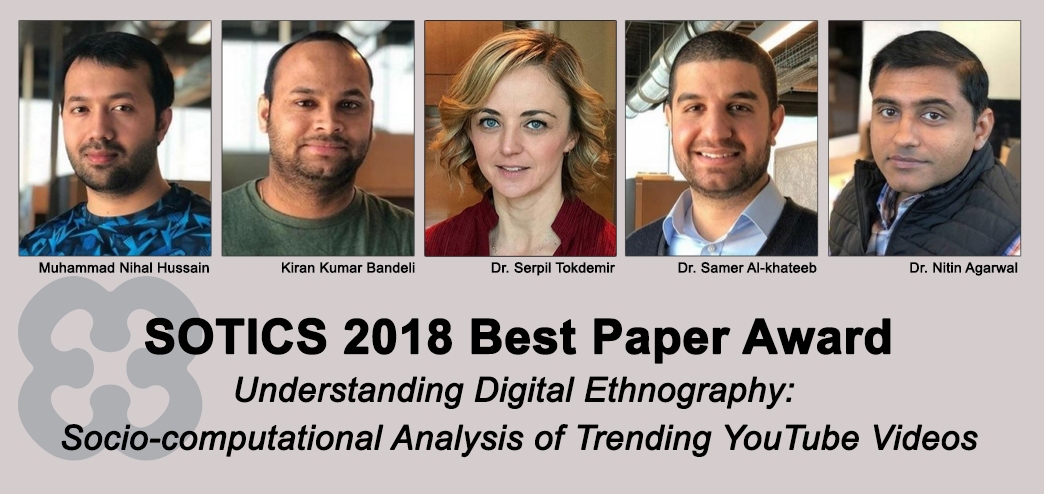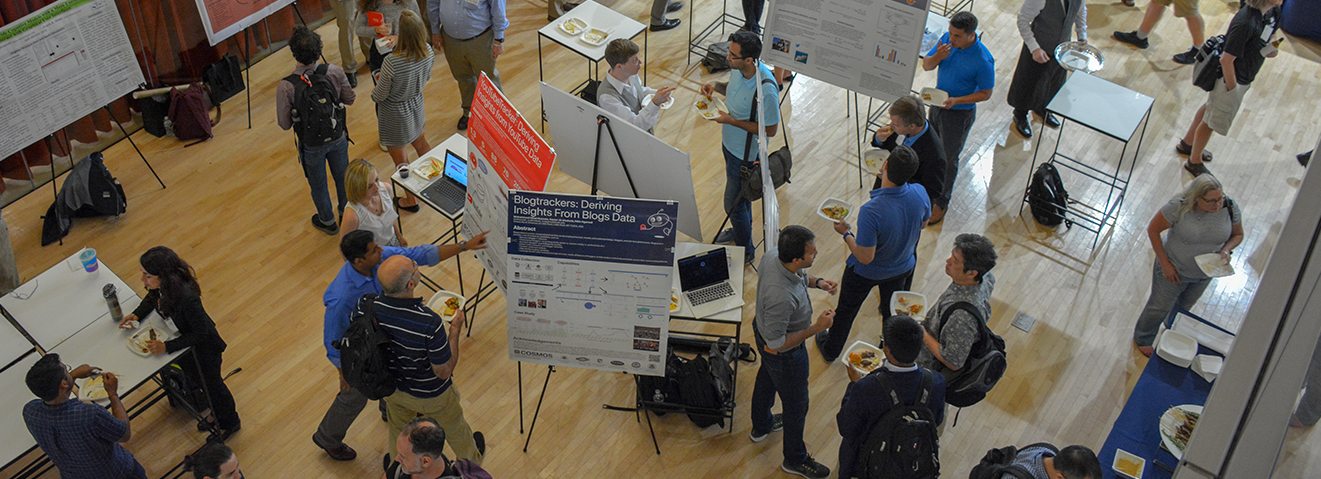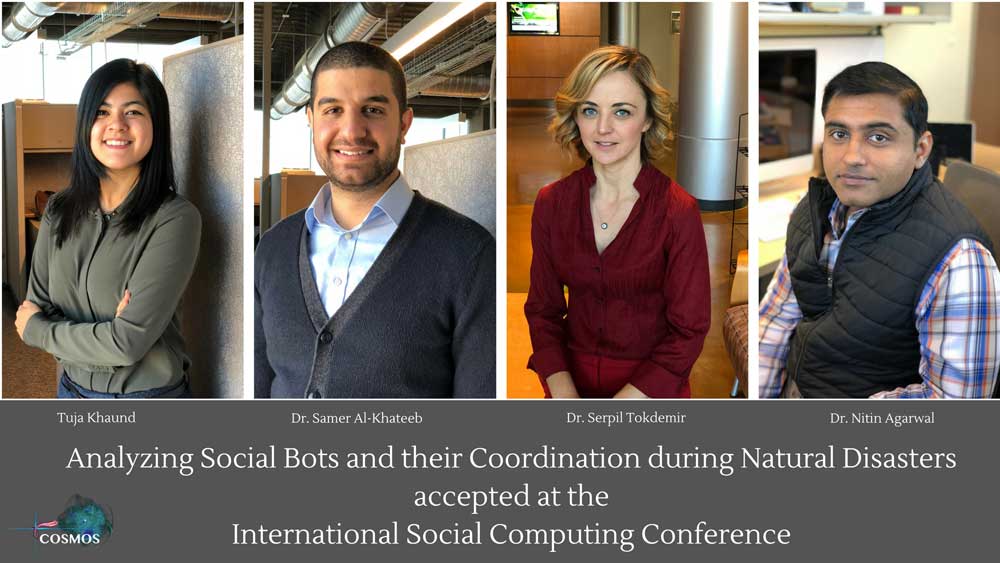Muhammad Nihal Hussain Successfully Defends his Doctoral Dissertation
Muhammad Nihal Hussain successfully defended his doctoral dissertation “Role of Multiple Social Media Platforms in Online Campaigns.” His committee consisted of Dr. Nitin Agarwal (chair), Dr. Samer Al-khateeb, Dr. Elizabeth Pierce, Dr. John Talburt, and Dr. Ningning Wu. Hussain studied cross-media information dissemination, in which content posted on one platform is shared to another to boost visibility. During his time at COSMOS, he has analyzed information operations campaigns conducted against NATO exercises. Throughout these campaigns, information actors utilized several platforms to disseminate content. “Most researchers focus on one platform to study disinformation, but dissemination strategies have evolved,” Hussain said. “Multiple social media platforms are usedRead More →

